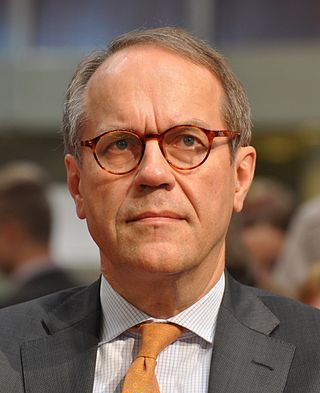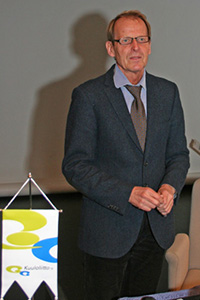Related Research Articles

Helsinki University of Technology was a technical university in Finland. It was located in Otaniemi, Espoo in the Helsinki metropolitan area. The university was founded in 1849 by Grand Duke of Finland, Emperor Nicholas I and received university status in 1908. It moved from Helsinki to Otaniemi campus area in 1966. The merger of HUT with two other schools created the Aalto University in 2010, and HUT briefly held the name Aalto University School of Science and Technology before being split into four schools in 2011.

The University of Helsinki is a public university in Helsinki, Finland. The university was founded in Turku in 1640 as the Royal Academy of Åbo under the Swedish Empire, and moved to Helsinki in 1828 under the sponsorship of Tsar Alexander I. The University of Helsinki is the oldest and largest university in Finland with the widest range of disciplines available. In 2020, around 31,600 students were enrolled in the degree programs of the university spread across 11 faculties and 11 research institutes.
Tampere University of Technology (TUT) was Finland's second-largest university in engineering sciences. The university was located in Hervanta, a suburb of Tampere. It was merged with the University of Tampere to create the new Tampere University on 1 January 2019.
The Finnish Society of Sciences and Letters is a Finnish learned society for natural sciences, social sciences and humanities. It is a bilingual science academy and the oldest of the four science academies in Finland.

Jorma Jaakko Ollila is a Finnish businessman who was chairman of Royal Dutch Shell from 1 June 2006 to May 2015, and at Nokia Corporation chairman from 1999 to 2012 and CEO from 1992 to 2006. He has been a director of Otava Books and Magazines Group Ltd. since 1996 and UPM-Kymmene since 1997, and an advisory partner at Perella Weinberg Partners, a New York–based boutique investment bank founded by Joseph R. Perella and Peter Weinberg in 2006.
Leena Peltonen-Palotie was a Finnish geneticist who contributed to the identification of 15 genes for Finnish heritage diseases, including arterial hypertension, schizophrenia, lactose intolerance, arthrosis and multiple sclerosis. She was considered one of the world's leading molecular geneticists.

The University of Eastern Finland is a university in Finland founded in 2010 with campuses in Joensuu and Kuopio.

The Finnish Institute at Athens is a scientific institute of Finland, operating in Athens, Greece. The institute's main objective is to practice and promote research on Greek archaeology, history, language and culture from antiquity until the present day. It is one of the 19 foreign archaeological institutes operating in Greece.

Kerstin Lindblad-Toh is a scientist in comparative genomics, specializing in mammalian genetics. She is the Scientific Director of vertebrate genomics at the Broad Institute and a professor in comparative genomics at Uppsala University. In 2010 she co-founded Science for Life Laboratory (SciLifeLab) together with Mathias Uhlén and acted as Co-Director until 2015. As the leader of the Broad Institute's Mammalian Genome Initiative she has led the effort to sequence and analyze the genomes of various mammals, including mouse, dog, chimpanzee, horse, rabbit and opossum. She has researched extensively on the genetics of dogs, identifying genes and genetic variants important in disease susceptibility, morphology and behavior.

Timo Juhani Vihavainen is a Finnish historian and a professor of Russian Studies at the University of Helsinki. He has written extensively on Russian and Finnish history. Vihavainen graduated as a Master of Philosophy in 1970, a Licentiate in Philosophy in 1983, a Doctor of Philosophy degree in 1988 and a Docent in Russian history in 1992. He is a member of the Finnish Academy of Science and Letters since 2009. At the beginning of the 2000s he was among the contributors of the Kanava magazine.
The following are academic ranks in the Finnish higher education system. There are a specific number of posts, which can be applied to when they are vacated or established.

Juha Sihvola was a Finnish philosopher and historian. He was a university professor of general history from 2000, and part of The Academy of Finland's Centre of Excellence program upon Philosophical Psychology, Morality and Politics, serving as the Deputy Director of the Centre of Excellence from 2008. In the years 2004–2009, he was the Director of Helsinki Collegium for Advanced Studies.

Vilho Ilmari Pyykkö is currently a professor and the head of the Hearing and Balance Research Unit at Tampere University School of Medicine. He is a specialist in Oto-rhino-laryngology. Prof. Pyykko has been awarded numerous awards and grants for research including an Honor Award from the American Academy of Otolaryngology in 2000.
Kari Antero Turunen, is a Finnish artistic director, choral conductor, ensemble tenor, and music scholar and lecturer.
Jaakko Nousiainen was a Finnish academic who was a professor of political science, and has served as a chancellor of the University of Turku. He graduated as a student in the Joensuu lyseon, in 1950. He was a doctoral student at the University of Helsinki, in 1959. In his doctoral dissertation, he studied Communist support in the municipality of Kuopio. An expert in Finland politics and government, Nousiainen analyzed the basis of Communism's support and distinguished Communism between Communist rural and Communist urban areas.

Helena Aksela is a Finnish physicist and emeritus professor at the University of Oulu. She was the first woman to be appointed a professor of physics in Finland.
Mari Johanna Ivaska is a cancer researcher and molecular cell biology academy professor in University of Turku, Finland.
Elina Haavio-Mannila is a Finnish social scientist and Professor Emerita of Sociology at the University of Helsinki where she served as the Docent of Sociology (1965–1971), Assistant Professor (1971–1992), and Professor (1992–1998). She is known for researching gender roles and gender in Finnish life. Much of the research in the latter field was done together with Osmo Kontula. In 1958, she became the first woman in Finland to earn the Doctor in Social Sciences degree.
Jaakko Arthur Kaprio is a Finnish human geneticist. He is Professor of Genetic Epidemiology at the Department of Public Health of the University of Helsinki, where he also leads the twin study project. He was director of the Finnish Institute for Molecular Medicine (FIMM) starting in October 2015, and ending on 31 January 2018. He formerly held a research professorship funded by the Academy of Finland for five years. He has also served as president of the Society for Research on Nicotine and Tobacco's European Chapter, the International Society for Twin Studies, and the Behavior Genetics Association.
Risto Ihamuotila is a retired Finnish academic and ex-Chancellor of the University of Helsinki.
References
- ↑ "Our members". EU-LIFE.
- ↑ "Molekyylilääketieteen instituutille johtaja". Yliopisto. No. 10. 2007. p. 7.
- ↑ "Helsinki Institute of life Science (HiLIFE)". Helsingin yliopisto, helsinki.fi.
- ↑ "Professor Samuli Ripatti to lead FIMM | HiLIFE – Helsinki Institute of Life Science | University of Helsinki". www.helsinki.fi. 2023-05-02. Retrieved 2024-06-18.
- ↑ Mari Kaunisto (2018-02-07). "Mark Daly nimitetty FIMMin uudeksi johtajaksi". FIMM. Retrieved 2019-06-05.
- ↑ "Suomen molekyylilääketieteen instituutin uudeksi johtajaksi akatemiaprofessori Jaakko Kaprio". FIMM. 2015-09-07. Retrieved 2017-03-30.
- ↑ "Suomen molekyylilääketieteen instituutin johtajaksi akatemiaprofessori Olli Kallioniemi". Biomedicum. Retrieved 2013-09-27.
- ↑ "Olli Kallioniemi is the new Director for SciLifeLab". Karolinska Institutet, ki.se. Archived from the original on 2016-11-12. Retrieved 2020-11-06.